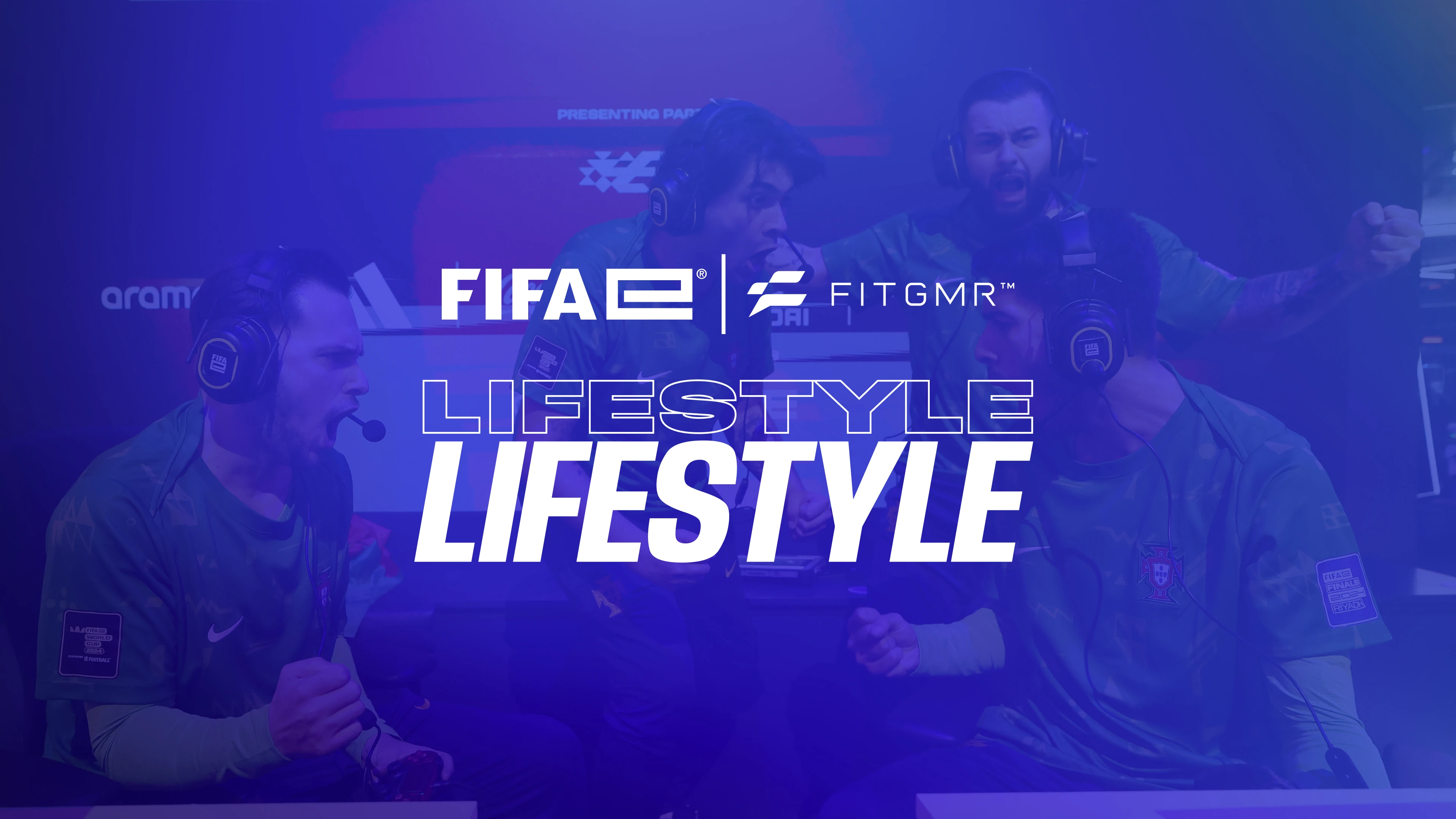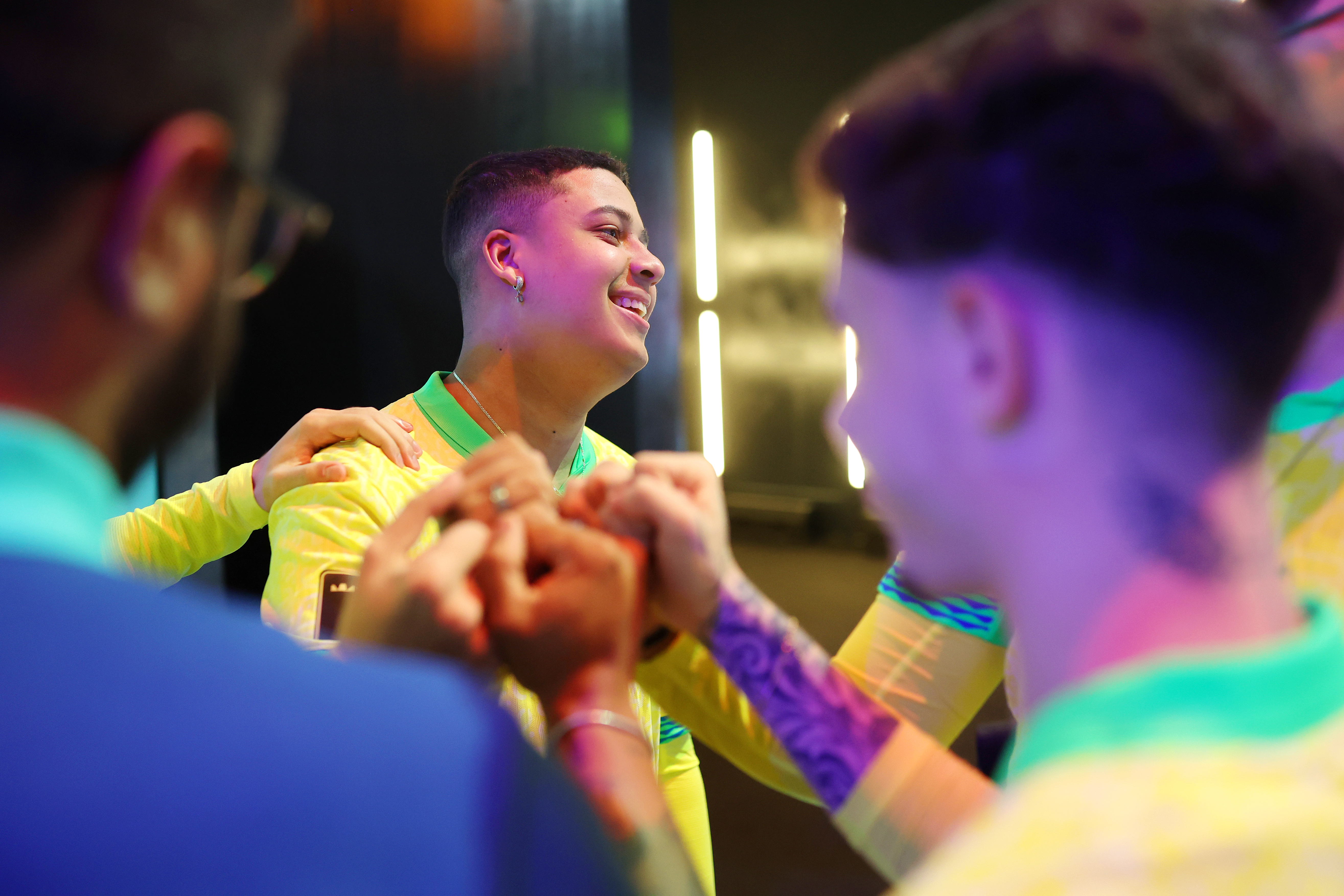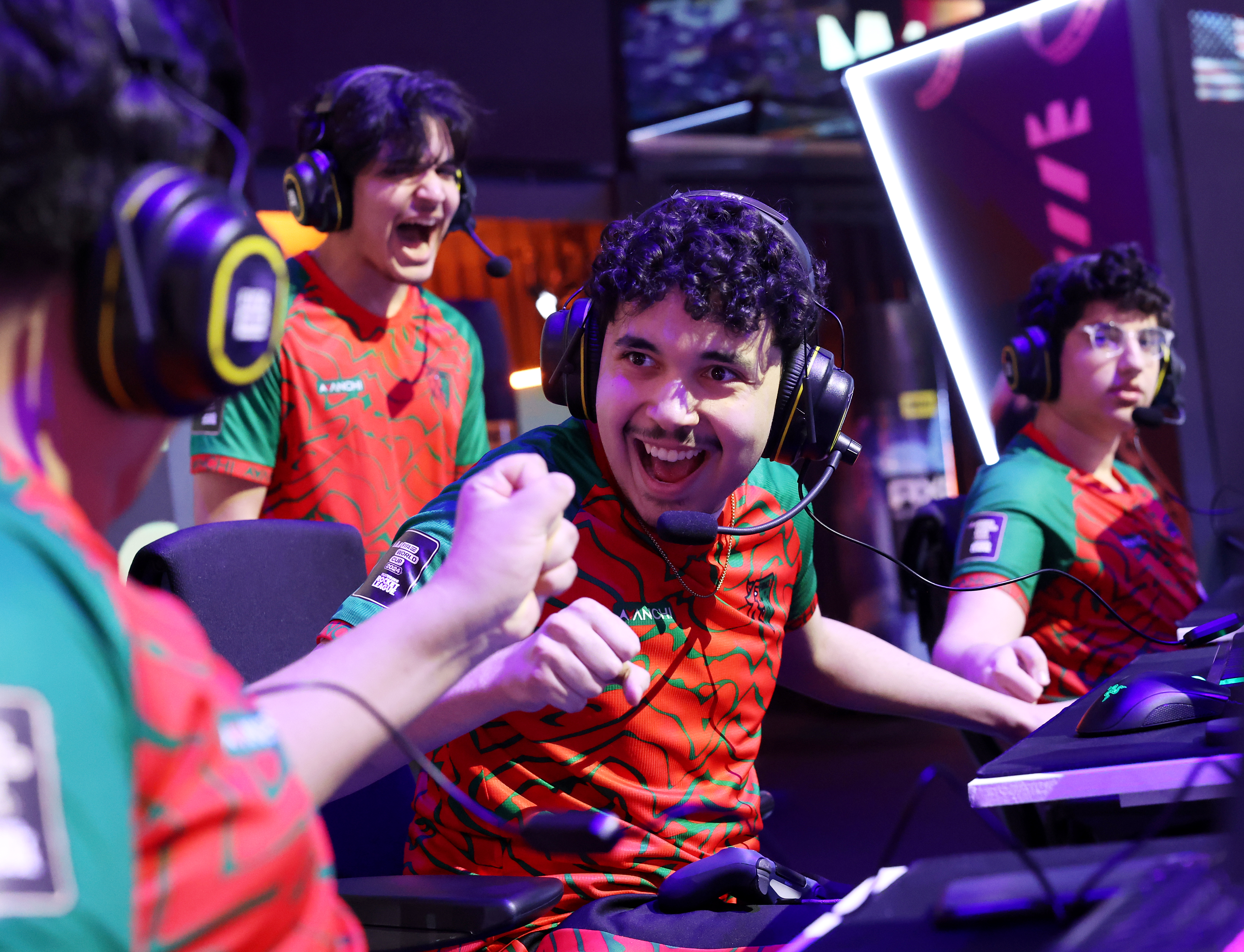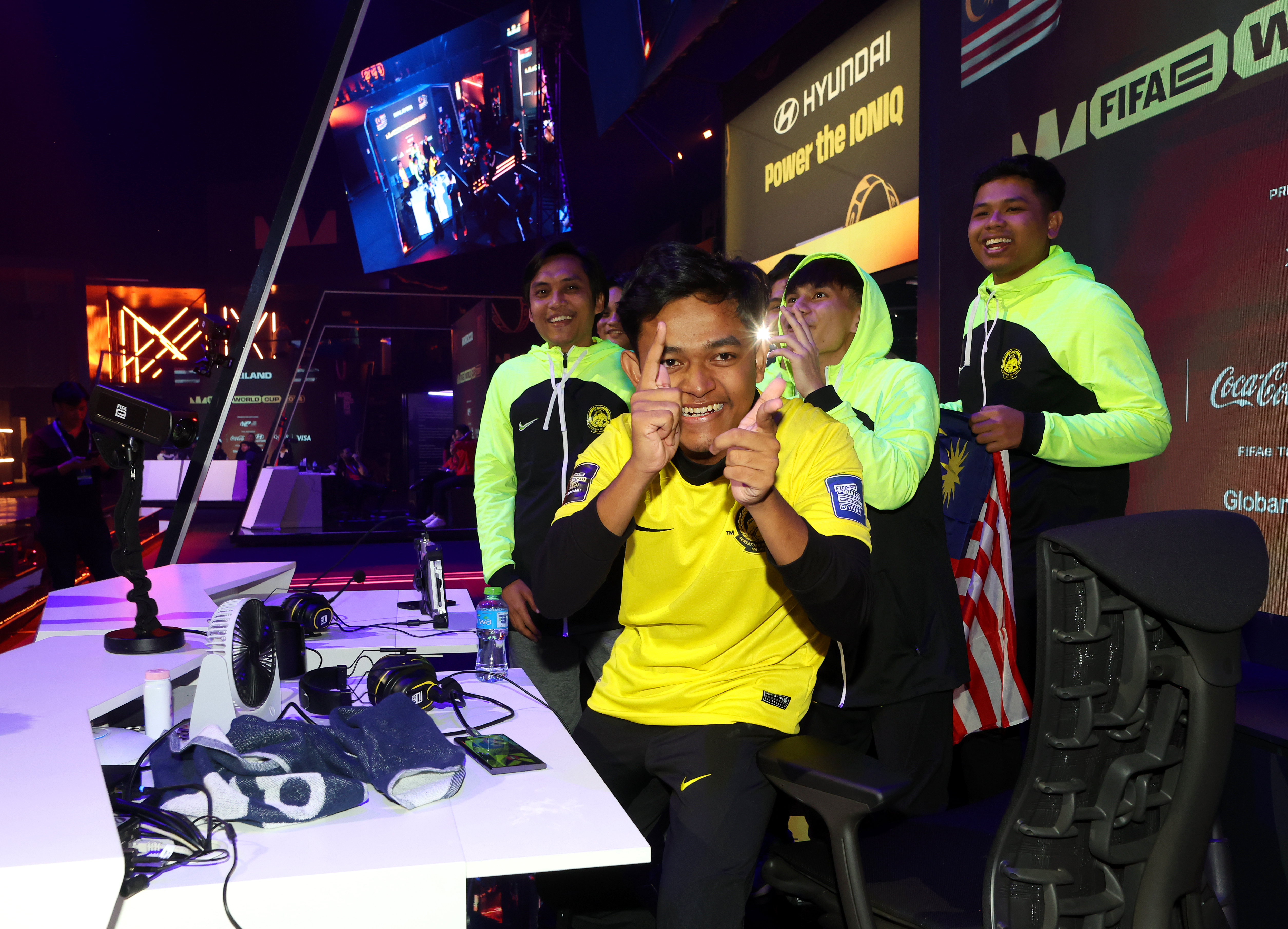
Your browser is not supported.
We are sorry, but the version of your browser is not able to display the content of fifa.gg. Please download the latest version or visit fifa.com.
Visit fifa.com01.09.2025
Passion, experience, reflexes, and quick thinking are all important factors when it comes to succeeding in gaming and competitive play. But maintaining a healthy lifestyle can truly level up a players’ performance. Spending excessive time in front of a screen, on the other hand, can lead to burnout and ultimately backfire, becoming a counterproductive path to reaching your goals.
Embracing the outdoors, building social connections, and pursuing personal growth through self-challenge are all key elements of a healthy lifestyle that help unlock your full potential. The best part? These habits not only enhance your gaming performance but also contribute to your overall personal development – a true win-win.
Building on its commitment to a healthy community and healthy players as part of the Good Game Promise, FIFAe, in partnership with FITGMR, presents the 5 Pillars of Health: physical maintenance, mental conditioning, sleep, nutrition, and lifestyle. This time we focus on lifestyle.
FIFA’s mission is to improve players’ health globally [1], and a healthy lifestyle is what drives the success of top athletes and professionals – and how you can use it to level up your own performance.
Like successful athletes, it’s important to have a well-rounded lifestyle that includes outdoor activity, hobbies, and strong social connections. Just as important are the environment the athlete lives in and their personal thoughts and beliefs. Balance is key to sustainable growth — in and out of the game [2]. Here’s why it matters to have a healthy lifestyle:
Improves mental and emotional resilience
Supports long-term performance and motivation
Enhance creativity and decision-making
Reduces stress and prevents burnout
“It’s important to take care of your body and mind. The better you feel, the better you’ll perform.” – Alex Morgan, former football player
A good lifestyle is often reflected in the performance of players in the FIFAe scene. Whenever pressure is on, top players and coaches make sure that they keep their focus while also prioritizing space for social interactions with other teams, getting enough leisure time to decompress and secure a good sleep routine, for example.
Outdoor activities work as powerful resets for the mind and body. To succeed at the game, you need a fresh mind and a fresh perspective.
Improves sleep quality via circadian rhythm support. Sleeping is key to success, performance, and mood regulation [3]
Enhance mood and stress management. Taking breaks outside from everyday responsibilities is beneficial to manage your stress.
Offers space for reflection and perspective. Outdoor activities are key for having a fresh mind when we most need it.
Recharges mental energy for better gameplay. Being in a competitive mode the whole day can silently drain you: connection with your surroundings can significantly recharge your mental energy.
How to recharge from outdoor activities?
Take morning walks, preferably before screen time. A simple short walk in the morning can exponentially help improve your mood and fitness [4]
Midday breaks in natural light. Exposure to sunlight helps with sleep regulation, so take breaks outside occasionally to get better sleep.
Practice weekend outdoor activities to fully disconnect. Any kind of movement boosts circulation and mood, leading to better in-game focus and recovery, while also having a positive effect on your daily-life focus [5]
Set up 10–15-minute walks around your neighborhood or local parks.
Plan your outings, including break moments in long walks.
Start partaking in any outdoor physical activity like gardening, cycling or hiking – any activity helps!
“Exercise. Go for a walk, go for a run at night. Something to clear your mind and take the stress away from the game” – Zac Moore, FIFAe coach
While gaming can be a hobby or even your number one hobby, for some it is a sport that demands significant time, energy, and commitment. But in general, hobbies are meant to be activities pursued outside of your core responsibilities and should allow you to get extra enrichment and enjoyment.
Taking on other hobbies is especially important if you are a professional gamer or plan to pursue that career path. Hobbies provide creative stimulation, build cognitive flexibility, and offer mental recovery from high-pressure play. You’d be surprised of everything that unlocks with practicing activities you love. [6]
Mental recovery and emotional regulation. Another hobby besides gaming can absolutely allow a mental “reset” and allow you time to mentally recover and emotionally regulate.
New skills that cross-train your brain (e.g., music, puzzles, art). It is well known that music, solving puzzles and even partaking artistic activities like painting, can cross-train your mind and ultimately sharpen your skills in game.
Joy and motivation beyond competitive results. Whether you’re into competitive play or not, there’s always competition within a game. It’s important to have another source of joy besides the excitement behind winning.
Pick one low-pressure hobby to explore (reading, drawing, chess, hiking, gardening, cycling)
Schedule it weekly, even just 30 minutes
Focus on enjoyment, not achievement.
Integrating even one simple hobby into your routine can have a powerful impact – not just on your overall mindset, but on your performance. By stepping away from the screen and engaging in something purely for enjoyment, you give your brain space to recover, build new cognitive pathways, and reconnect with motivation beyond the scoreboard. Over time, these moments of balance can help you return to the game sharper, more focused, and more resilient – ready to play.
Humans are social creatures, and meaningful social bonds are known to fuel mental health and emotional strength. Whether it’s a close friend, team support, or a casual conversation, it’s important to keep yourself away from social isolation. At the same time, it is critical to weed out interactions that do you more harm than good.
Boosts emotional health: Meaningful connections help reduce stress, anxiety, and feelings of isolation.
Supports authenticity: Being around people who let you be yourself strengthens confidence and mental balance.
Reduces tilt and burnout: Having people who ground you or offer perspective helps you bounce back from losses and stay focused longer.
Builds a support system: Trusted connections give you people to talk to, lean on, and celebrate with — all key for a sustainable lifestyle.
Reflect on how interactions make you feel. Everyone is different! Some interactions make some of us feel energized, while others would make some of us feel drained.
Try creating meaningful connections. Go beyond surface-level interactions and allow yourself to be your authentic self.
Cultivate healthy connections. Everyone needs healthy connections and boundaries around toxic and draining relationships. This is particularly true for esports players who engage in competitive play and actively participate in online communities.
To start:
Check your energy after social interactions and ask yourself: Do I feel more energized or drained? Do I prefer big crowds or smaller groups?
Being yourself builds stronger, more supportive teams.
Mute or distance yourself from toxic interactions in chats or communities.
Maintain professionalism and avoid engaging in negative interactions. Use moderation tools or report systems when necessary to manage toxic behavior in a later stage. [7]
Personal growth is a rewarding experience, but it does often start with discomfort or uncertainty: trying something new, stepping up, or failing forward can be frustrating at first. But these small moments build the mindset needed for high-pressure competition! [8]
Builds confidence: Pushing past your comfort zone strengthens your belief in your own abilities – on and off the screen.
Prepares you for pressure: Facing discomfort in everyday situations (like public speaking or trying something new) makes high-stakes gameplay easier to manage.
Develops a growth mindset: Viewing challenges as opportunities shifts your mindset from fearing failure to learning from it.
Take on new roles or responsibilities
Say yes to public speaking or creative projects
Embrace being a beginner at something outside gaming
Try micro-challenges: speaking in a group chat, playing a new role in-game, learning a short song on an instrument can be useful to build confidence.
Set goals that are Specific, Measurable, Achievable, Relevant, and Time-bound (SMART approach).
Reframe failure as feedback. When something goes wrong, ask: “What can I learn from this?”
A healthy lifestyle supports both mental sharpness and long-term success. That means getting outdoors, engaging in hobbies, staying socially connected, and challenging yourself beyond gaming. These habits improve emotional regulation, prevent burnout, and keep your motivation strong, which are key traits in top-level play.[9][10]
Schedule time away from screens. Intentionally plan screen-free moments during the day
Pick one enjoyable hobby. Try a low-pressure activity like drawing, reading, or biking that helps you relax and mentally recover from long gaming sessions.
Connect with others offline. Spend time with your loved ones in real life. These meaningful connections can reduce stress and boost your overall well-being.
Encourage Outdoor Breaks. Recommend short walks or fresh air breaks between scrims or practice blocks.
Support non-gaming hobbies. Create space in the schedule for players to pursue other interests (e.g., music, sports, or creative activities).
Strengthen team dynamics by encouraging open communication, supportive relationships, and social check-ins outside of gameplay.
FITGMR app: The FITGMR app helps you to build a healthy routine via mindfulness exercises, wellness tracking and daily tips designed specifically for gamers. There are also Weekly Challenges to stretch your limits like, “Wait 30 minutes before looking at your phone after you wake up.”
Personal wellness journal: everyone can benefit from journals! You can keep track of how you feel before/after matches, your energy levels after social interactions and your time spent outdoors or on hobbies.
Outdoor activity reminders: whether it’s on your mobile, desktop or notes on your fridge: a calendar can be an excellent tool to remind you of regulating activities. You can set reminders for walks or sunlight and nature exposure activities that better support your sleep cycles, ultimately improving your performance throughout the day.
Explore more tips, exercises, and expert-backed strategies in the FIFAe Healthy Gaming Guide powered by FITGMR – your go-to resource for building resilience, focus, and well-being in competitive play.
Find more helpful guides here.
Ready to level up your habits? Join FIFA.GG and start tracking today to see the difference for yourself.
[1] FIFA, “Health and medical,” FIFA.com. [Online]. Available: https://inside.fifa.com/health-and-medical
[2] M. Goulart et al., "Nutrition, lifestyle, and cognitive performance in esport athletes," Frontiers in Nutrition, vol. 10, 2023. [Online]. Available: https://www.frontiersin.org/articles/10.3389/fnut.2023.1120303/full
[3] K. A. R. Smith et al., “Associations between time spent in outdoor light and sleep, psychiatric disorders, and cognitive function: A Mendelian randomisation study,” J. Affect. Disord., vol. 296, pp. 1–9, 2022. [Online]. Available: https://www.sciencedirect.com/science/article/abs/pii/S0165032721008612
[4] G., Jessica (n.d.). Outdoor activities and sleep: The role of sunlight and fresh air. Pillow. Retrieved from Pillow.app
[5] Wang, Y., Qiu, X., Sun, J., Wang, X., Huang, F., & Wu, J. (2023). The effect of physical activity on sleep quality and sleep disorders: A systematic review. Sleep & Breathing, 27(3), 1023–1040. PubMed Central.
[6] E. Parkhurst, "How Hobbies Improve Mental Health," Utah State University Extension, Oct. 25, 2021. [Online]. Available: https://extension.usu.edu/mentalhealth/articles/how-hobbies-improve-mental-health
[7] A. Freeman and J. Wohn, "Social Support in Esports: Building Emotional and Esteem Support Through Game Play," Proc. 2017 CHI Conf. Human Factors Comput. Syst., pp. 4351–4355, 2017.
[8] K. Woolley and A. Fishbach, "Motivating Personal Growth by Seeking Discomfort," Psychological Science, vol. 33, no. 4, pp. 510–523, Apr. 2022.
[9] Mayo Clinic Staff, "The mental health benefits of nature: Spending time outdoors to refresh your mind," Mayo Clinic Press, 2023. [Online]. Available: https://mcpress.mayoclinic.org/mental-health/the-mental-health-benefits-of-nature-spending-time-outdoors-to-refresh-your-mind/
[10] K. Rudolf et al., "Media consumption, stress and wellbeing of video game and esports players in Germany: The eSports Study 2020," Frontiers in Sports and Active Living, vol. 4, 2022. [Online]. Available: https://doi.org/10.3389/fspor.2022.665604



